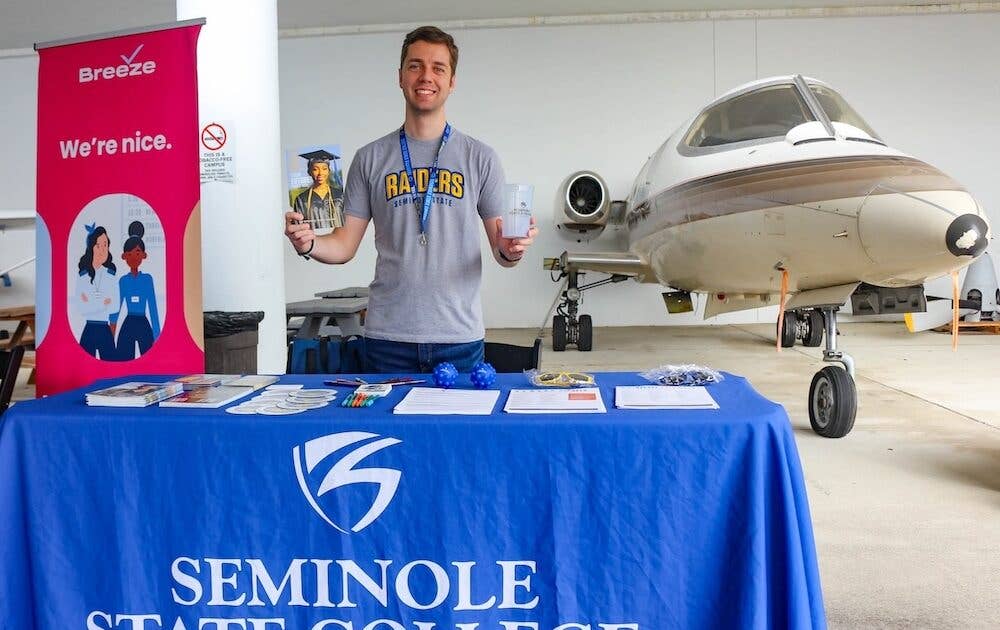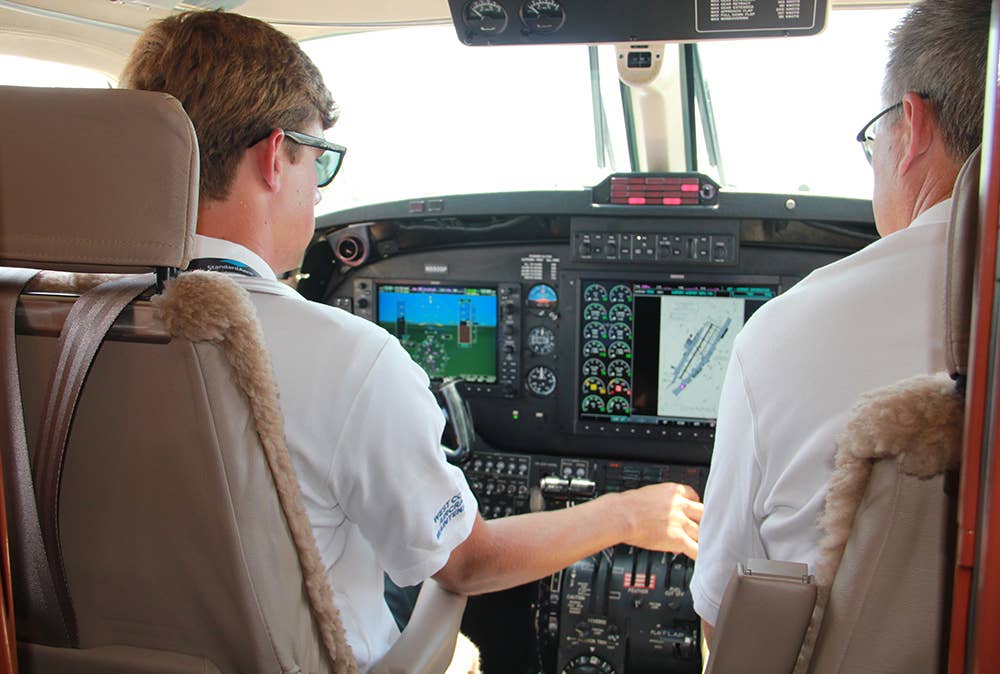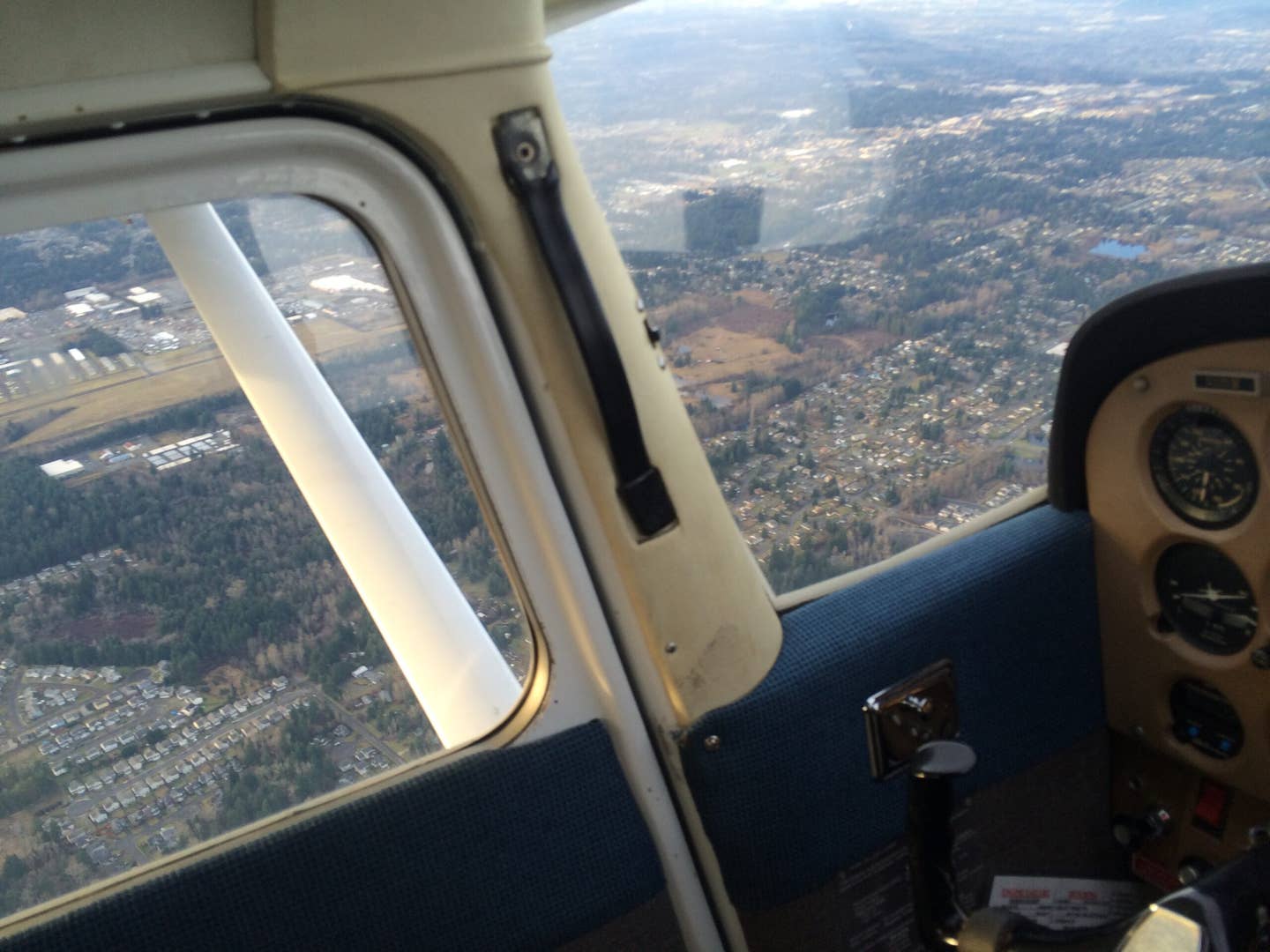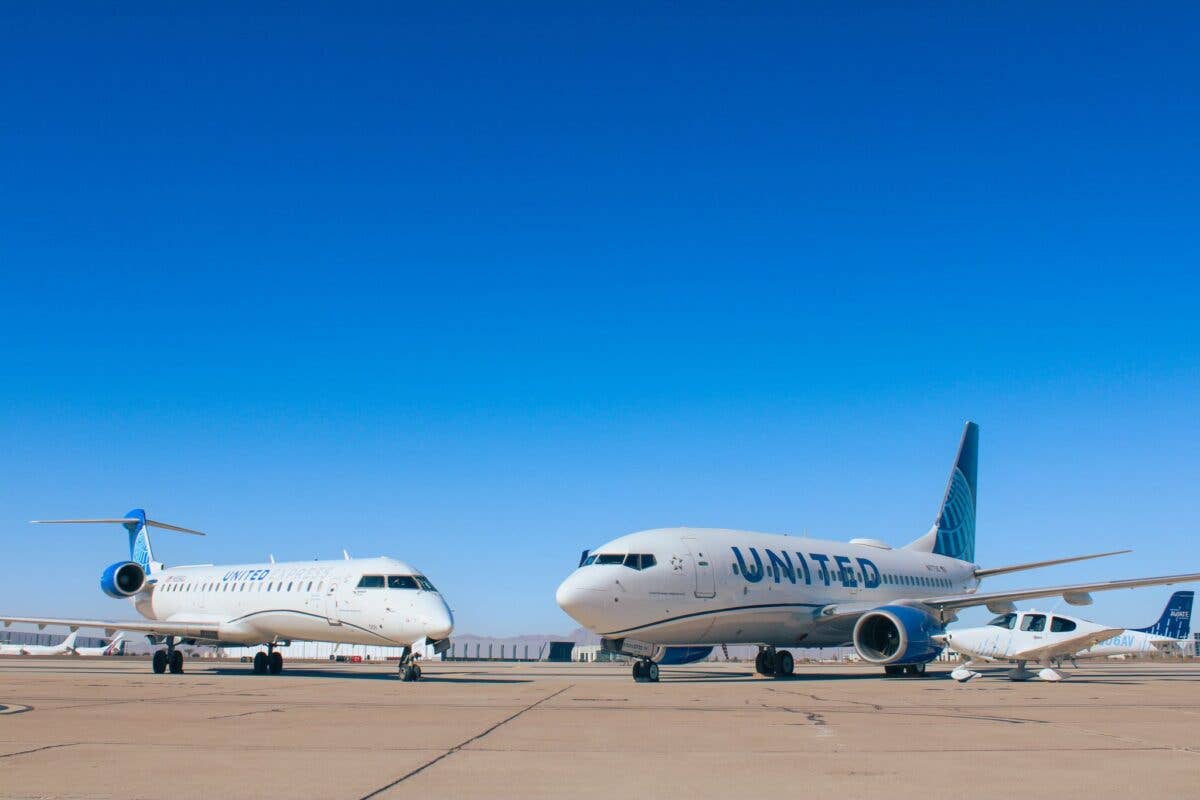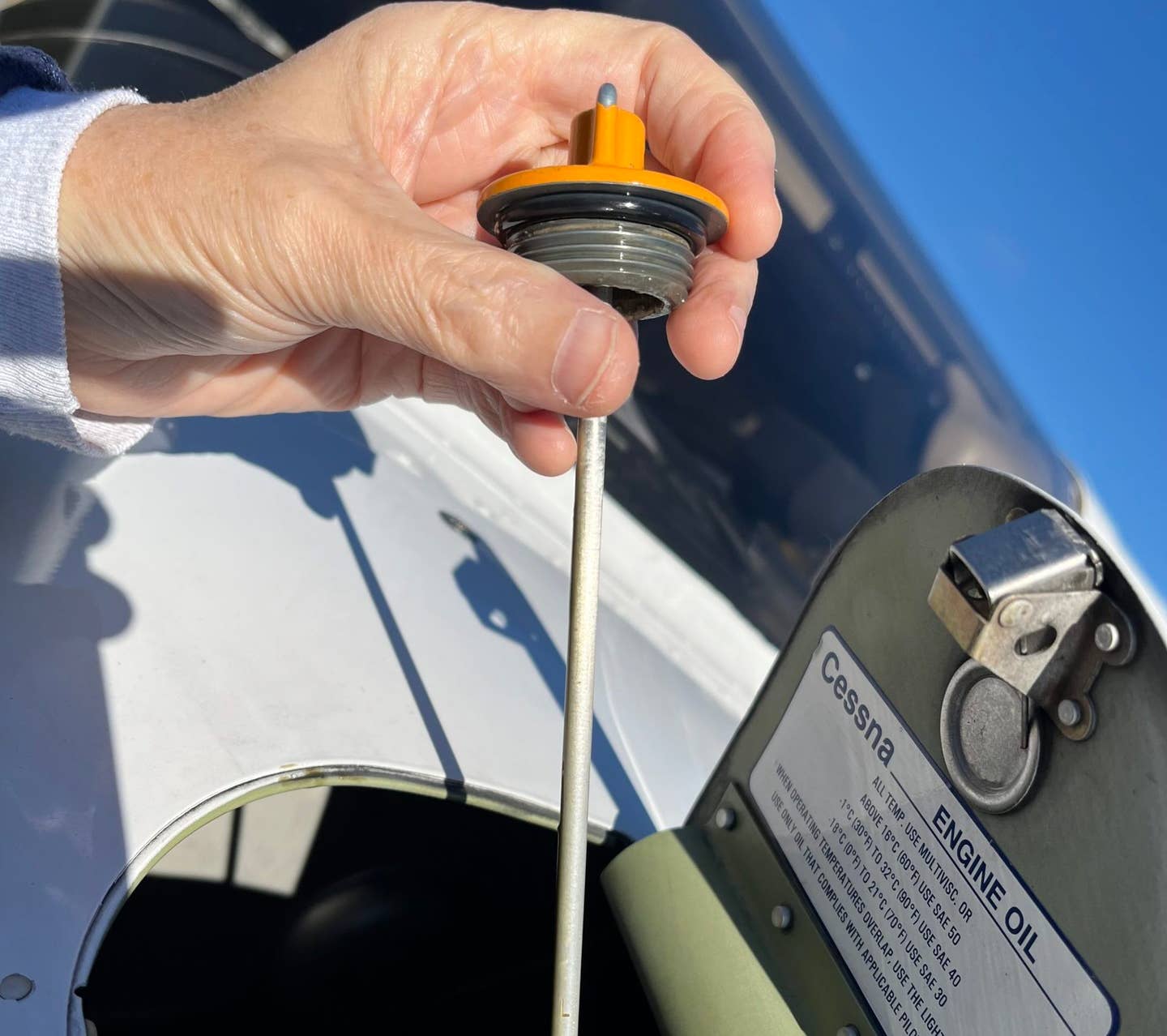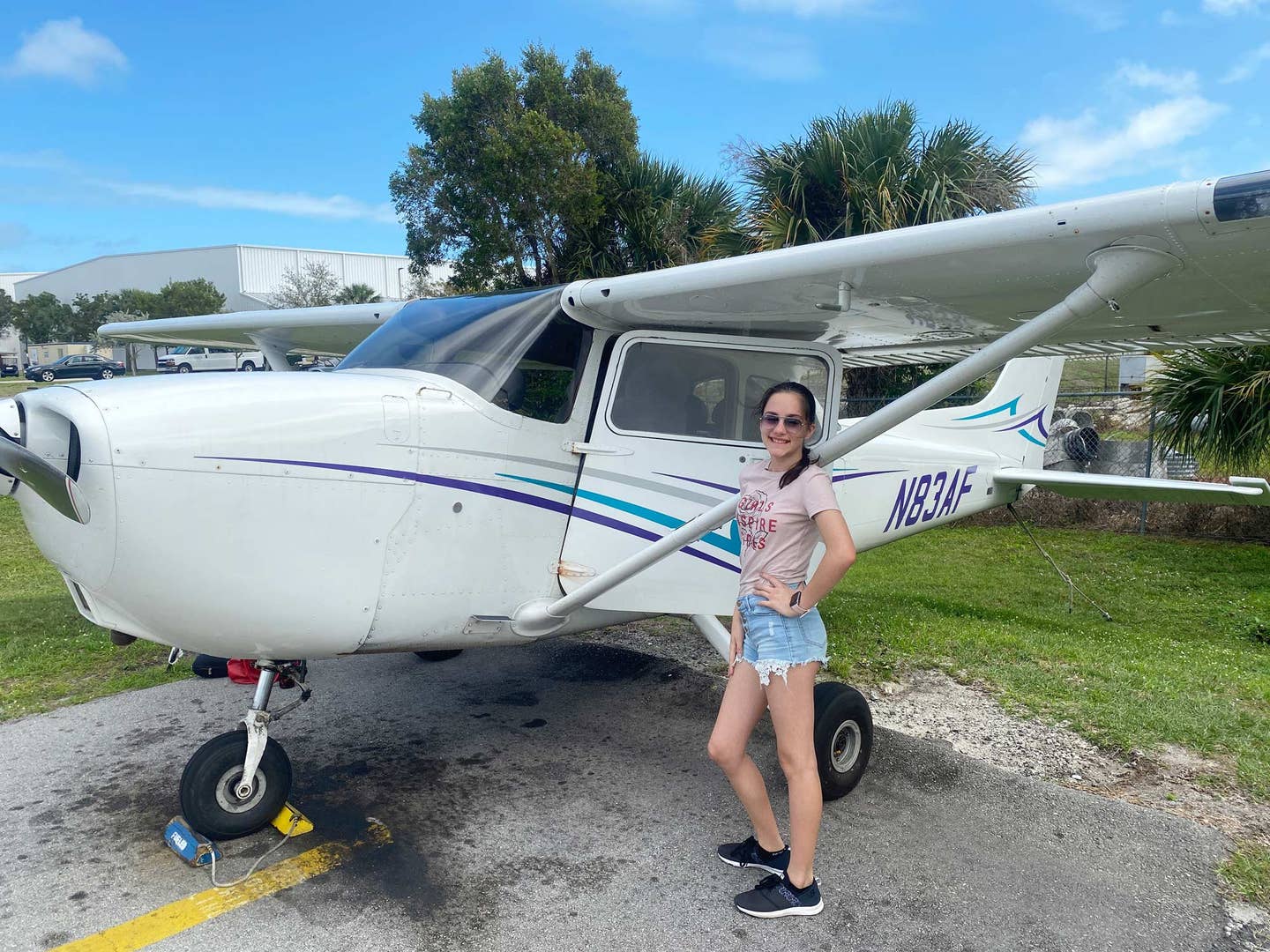
Ava Shelly has started taking flight lessons in this Cessna 172. Courtesy of Ava Shelly/Mike Shelly
Flight training is hard—I mean really hard.
I suppose it is meant to be hard: Passengers depend on their pilots to be knowledgeable and confident so they can land the airplane in any circumstance.
In the same vein, many passengers are familiar with the technical aspects of flight training, but they don’t realize the hardest part of becoming a pilot is learning to believe in yourself.
Every aspiring aviator is forced to face their insecurities and beat the demons out. This is what separates the great pilots from the rest.
One secret that I’ve learned in facing the challenges of flight training is that mentors make the process easier. Surrounding yourself with people who have been there, done that—and can help—are the most valuable piece of the flight training puzzle.
Finding one great mentor is helpful, but finding several is life-changing. I have been blessed to find a few people to help guide me through my aviation journey.
My New Pilot Journey
Before we get to my mentors, I should introduce myself! My name is Ava Rian Shelly. I am 13 years old, and my first discovery flight was a birthday gift from my grandfather on my 10th birthday.
As I write this, I just crossed the 40-hour mark of logged flight hours and have two full years before I can officially take my written exam.
My aviation experiences include helicopters, acrobatic flights, a beautiful scenic flight around Paris, and so much more. I was awarded a glider scholarship at my local soaring club so I can solo on my 14th birthday, and I hope to solo both rotorcraft and fixed wing aircraft on my 16th birthday. I have many aviation goals which require a lot of help and this is why mentors are really important to me.
Mackenzie Shepard is my friend, my CFI, and most importantly, my mentor. While she is only 22 years old, she is so accomplished—I hope to emulate the example she has set for me.
All of Mackenzie’s flight training and multiple ratings were paid for by scholarships she earned to pursue her dream of becoming a commercial airline pilot. She started flying around 12 years old, so she is familiar with some of the challenges I face: including not being taken seriously by other pilots or students, struggling to reach the rudder pedals, and lacking friends my age who share my aviation passion.
Mackenzie makes flying fun. Each flight we fly together, we always include a plan to fly low and slow along Florida’s East Coast looking for manatees, sharks, turtles, and boats full of people enjoying the warm weather. It’s refreshing and reassuring having someone like Mackenzie who can relate to me and my experiences as an aspiring pilot.
A Special Navy Mentor
Ultimately, my dream is to attend the United States Naval Academy and become a fighter pilot, flying the F-35C Joint Strike Fighter. Serving my country and service to others is an important part of who I am. I can’t think of a better way to do just that than flying a fifth-generation fighter jet protecting America’s sailors and Marines.
Flight training requires a lot of reading. I came across a book, Jet Girl, written by Caroline Johnson. Caroline is a 2009 Naval Academy graduate and Naval Flight Officer. Caroline was the first woman to drop bombs on the Islamic State terrorists from the backseat of an F/A-18F Super Hornet, which, in my opinion, is one of the coolest jets in the world!
My dad reached out to Caroline to sign her book for me and that was the beginning of our mentoring relationship. Soon after my dad contacted her, she took the initiative to reach out to me, and we started emailing and texting each other.
Through multiple video chats and calls with me and my family, Caroline has answered all my questions about the Naval Academy, Navy life, flying, and so much more. Caroline has become a really big mentor in my life because I want to follow in her path. I am so thankful for all of the female military aviators who have come before me and forged a clear path for me to follow.
Associations of Support
There are so many organizations to support pilots: the Aircraft Owners and Pilots Association. (AOPA), the Experimental Aircraft Association (EAA), Women in Aviation International (WAI), and the Ninety-Nines (99s) are just a few. If you are not already a member of one or more of these groups, I would highly recommend it.
My local EAA chapter, 692, based out of Stuart, Florida, is one place where I have met some of the most amazing and influential people in my aviation journey. Eric Ingram, the chapter president, has graciously welcomed me and my family and exposed me to so many different opportunities.
We volunteer each year at the air show and get to meet the performing pilots and see their airplanes. My mom is the Young Eagles coordinator, and each year we fly hundreds of kids for the first time. For me, it is really exciting to see their faces when they land.
Another one of my favorite aviation organizations is the Treasure Coast 99s, a group of women pilots who find really fun ways to engage with their community. Each year, they bake cookies and deliver them to the ATC towers in our area, host Girl Scout aviation days so young women have the opportunity to earn advancement badges, and much more.
Ruth Jacobs, the founding chairman of the chapter, is someone I truly cherish. Ms. Jacobs and fellow pilot Bill Signs are Guinness World Record holders for the fastest time in a single-engine airplane to land on all seven continents, which they did in 50 days. They also received an award at the Smithsonian for one of Ten Most Outstanding Flight in 1996. She is also one of only seventy female Wright Brothers Master Pilots, which is awarded to any pilot with 50 years of flying experience. Her experience and support are paramount to my journey.
How to Be a Mentee
Every single individual I’ve mentioned has offered me a differing perspective on their aviation experiences and supported me in a multitude of ways. I have learned not only how to pursue my dreams in aviation, but I have learned how to develop rich mentoring relationships.
Being a good mentee means reaching out to my mentors, seeking advice, and also welcoming instruction, criticism, and guidance. Even on the tough days I truly believe that each of these people believe in me and my passion for aviation.
Being a mentee isn’t just showing up either, it’s being prepared, knowing what questions you want to ask, engaging in your own training. Flight training is hard, but mentors make it easier.
Find somebody who has already done what you want to do, learn from them, talk to them, and ask them to be your mentor. I bet they will say yes, because I’ve learned that mentors learn just as much from you, as you do from them.
Girls in Aviation Day, hosted by WAI and other supporting companies and entities, takes place on September 25 (and alternate dates, depending on their location). To find out how to connect with GIAD or the WAI chapter near your, register here.

Sign-up for newsletters & special offers!
Get the latest FLYING stories & special offers delivered directly to your inbox

